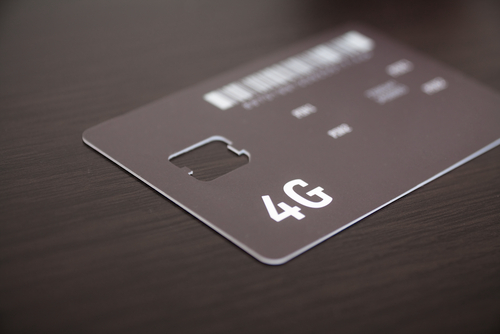UK 4G Speeds Have ‘Halved’ In Past Year

Opensignal research suggests 4G speeds are slowing as more people access LTE networks
4G speeds in the UK have halved over the past year as more users subscribe to LTE services, according to new research from Opensignal and Which?
The UK State of the Market Report collected 68 million readings from 40,000 users over the past month to determine what type of signal, if any, devices were receiving and the speeds they were receiving.
Unsurprisingly, London has the best 3G and 4G coverage in the country, while Vodafone has the fastest LTE service and EE has the best coverage. However average speeds on 4G services have fallen from 19Mbps in October 2013 to just over 10Mbps – significantly less than the 24.5Mbps average recorded in Australia earlier this year.
Slowing 4G speeds
 Vodafone’s LTE network achieved average speeds of 13.21Mbpsm ahead if EE on 11,78Mbps, O2 on 10.50Mbps and Three with 8.95Mbps.
Vodafone’s LTE network achieved average speeds of 13.21Mbpsm ahead if EE on 11,78Mbps, O2 on 10.50Mbps and Three with 8.95Mbps.
EE users could receive a 4G signal 50.22 percent of the time, Vodafone 38.39 percent, O2 36.92 percent and Three just 20.9 percent. These results correspond to the order in which each operator launched their respective LTE networks, with EE first in November 2012 and Three last, starting its rollout late last year.
Three is reliant on its 3G network more than any other operator, partly because it’s 4G rollout is less advanced than its three major rivals but also because it has no 2G network to fall back on. Indeed, three users could access a 3G or 4G signal 93.93 percent of the time, ahead of EE on 81.12 percent, O2 with 68.59 percent and Vodafone 64.70 percent.
Three dependent on 3G
It’s worth pointing out that although the last three operators do transfer some voice traffic to 2G in order to prioritise data on 3G and 4G, Ofcom data suggests just 0.4 percent of all time on a mobile phone is spent making calls.
However Three customers are the most likely to be without signal at all, with 5.65 percent of tests indicating a failure to connect to either 3G or 4G, while O2 failed on 5.27 percent of occasions. EE users were frozen out 5.16 percent of the time and Vodafone performed the best with 4.97 percent.
Opensignal says its testing methods provide more accurate coverage maps than predictions made by operators, which often don’t take into account variables like buildings and trees that can impact signal.
RootMetrics tests have previously suggested that EE is the best operator in both the UK and London, although Liverpool has the best mobile service in the country, ahead of the capital and other major cities.
The government has announced proposals to deal with the issue of poor mobile coverage in rural areas, including a ‘national roaming’ network, although this is being resisted by mobile operators who say such a system would be expensive, unworkable and unlikely to deliver any real benefit.
What do you know about UK mobile operators? Find out with our quiz!